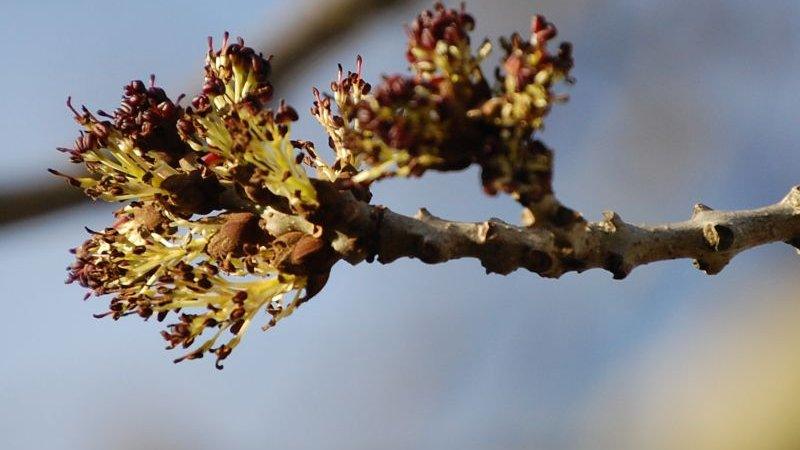Up to 14,000 infected trees on Salisbury Plain to be chopped down
- Published
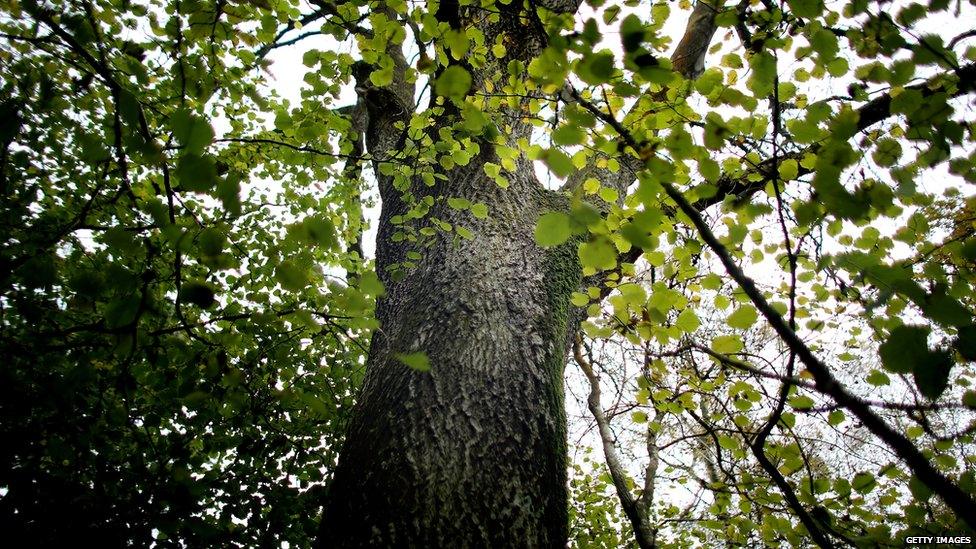
Thousands of ash trees infected with ash dieback will be felled on Salisbury Plain
Up to 14,000 ash trees will be chopped down on Salisbury Plain in a bid to stop a destructive disease.
The trees have been found to be infected with ash dieback, a fungus that originated in Asia and is spread through spores.
They are on Ministry of Defence land and Lieutenant Colonel Tim Jalland said there is a risk branches could fall off, causing injuries.
Felling will take three years and native broadleaf trees will be planted.
Lt Col Jalland said: "Our concern is that there could be bits and pieces dropping off the trees if we are not careful.
"I'm led to believe they can shatter because they are dead inside."
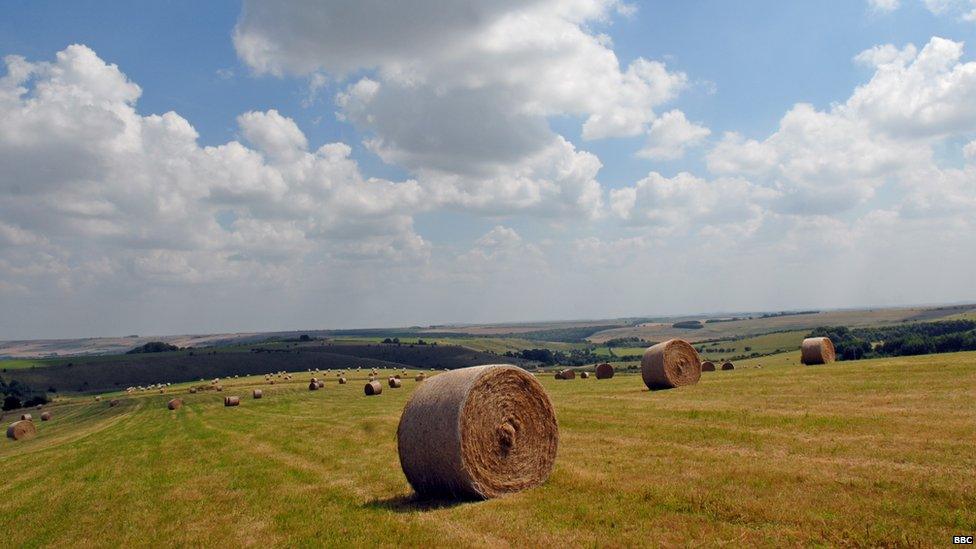
Salisbury Plain in Wiltshire is a chalk plateau covering around 300 square miles
European ash did not evolve with the ash dieback fungus so it has no natural defence to it.
It is thought the UK could end up losing up to 95 per cent of its ash trees because of ash dieback.
Judith Peachey, a forester for Landmarc which carries out much of the day-to-day management of the estate, said: "We're going to devastate the landscape.
"We're going to remove a large number of trees but it also gives us the opportunity to restructure our woodlands and replant with native broadleafs," she said.
"So we're not actually going to lose the woodlands themselves, we're just going to have woodlands here in a slightly different form."
- Published17 January 2020
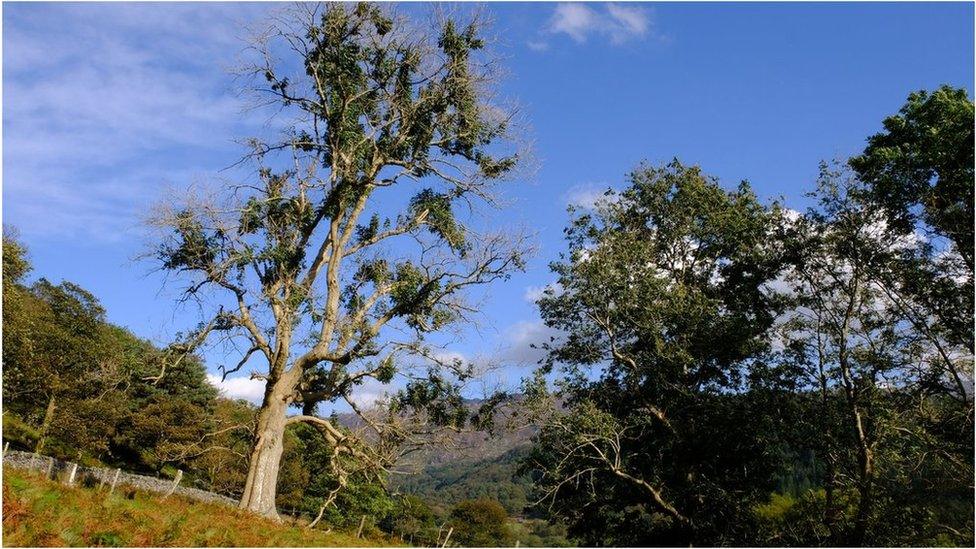
- Published7 November 2019
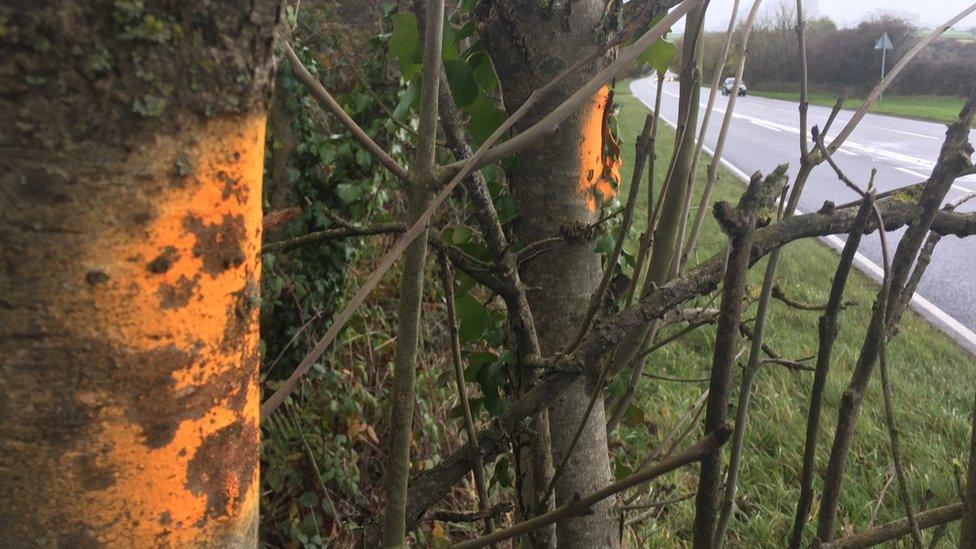
- Published6 May 2019
